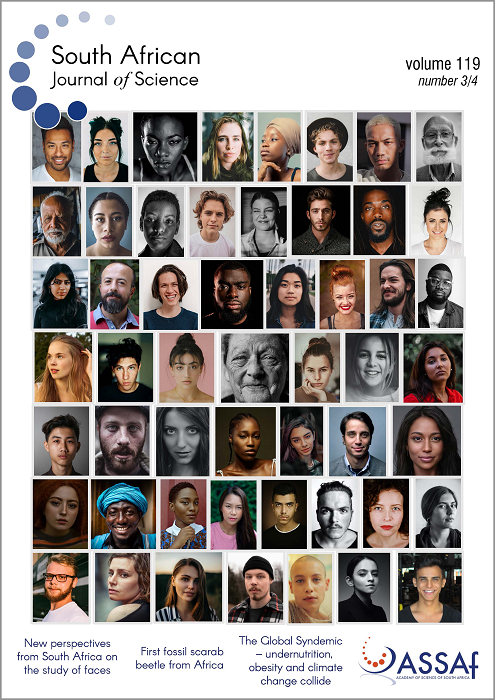Non-linear effects of stress on eyewitness memory
DOI:
https://doi.org/10.17159/sajs.2023/12102Keywords:
stress, eyewitness, memory, line-up, facesAbstract
The effect of stress on face identification is not yet clear, with recent experiments finding positive, negative and null results. Here we report the results of two experiments examining the effect of stress on eyewitness performance in line-up face recognition tasks. Both experiments use a stress manipulation and live mock crime paradigm to examine the relationship between stress at encoding and subsequent line-up performance. Experiment 1 replicated an experiment by Sauerland et al. (Behav Sci Law. 2016;34(4):580–594) which induced stress using the Maastricht Acute Stress Test. The replication found the same null result as the original experiment. Experiment 2 aimed to address a limitation of many laboratory experiments which dichotomise stress into low and high groups for comparison. As the Yerkes-Dodson law (1908) suggests that a non-linear relationship exists between stress and performance, it was hypothesised that using a low, medium and high stress manipulation might show clearer results than a dichotomous paradigm. The results of Experiment 2 show a non-linear relationship, with no difference between the low and high stress groups but better performance by the middle stress group. The results suggest that a different approach is required in experiments on stress and face recognition, as the stress–performance relationship is likely non-linear.
Significance:
- Non-linear models are better predictors of face recognition in line-up tasks than are linear models.
- Two group designs provide insufficient resolution to capture the stress–performance relationship.
Published
Issue
Section
License

All articles are published under a Creative Commons Attribution 4.0 International Licence
Copyright is retained by the authors. Readers are welcome to reproduce, share and adapt the content without permission provided the source is attributed.
Disclaimer: The publisher and editors accept no responsibility for statements made by the authors
How to Cite
- Abstract 1160
- PDF 1077
- EPUB 149
- XML 471












.png)